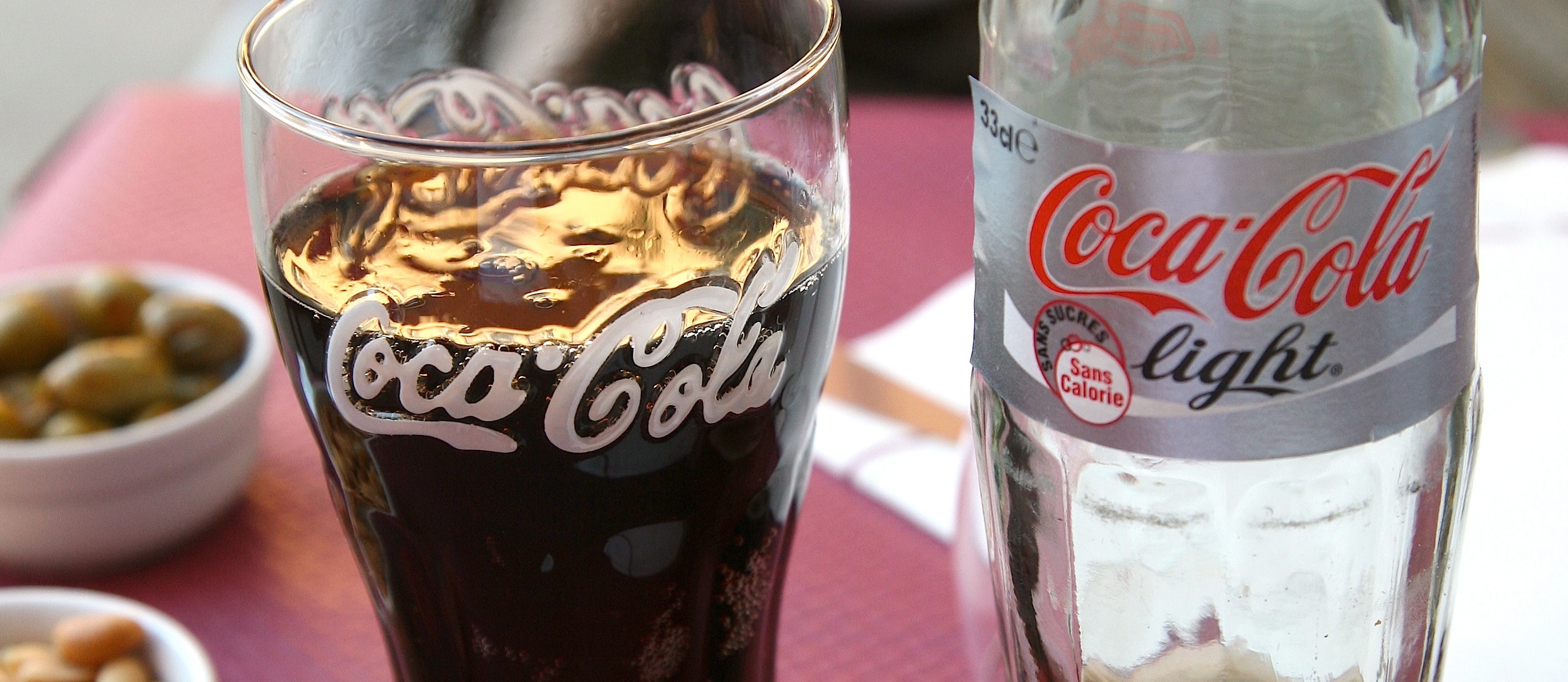There are three ways that all low-caloric sweeteners could theoretically be harmful independent of their specific chemistry. As I report in my 2-min. video How Diet Soda Could Make Us Gain Weight, several large studies have found an association between artificial sweetener use and weight gain, meaning the people that drank the most diet soda, for example, gained the most weight. The most common explanation for this counterintuitive finding is what’s called reverse causation. People aren’t fat because they drink diet soda; they drink diet soda because they’re fat!
But there are at least three less benign alternative explanations. The first is called “overcompensation for expected caloric reduction.” If you covertly switch someone’s soda for diet soda without him or her knowing it, his or her caloric intake drops. Obviously, right? They’re not drinking all that sugar anymore. But what if you tell them what you did? People who knowingly are consuming artificial sweeteners may actually end up eating more calories. Why? Because they’re like hey, I’m drinking diet soda, so I can have two pieces of cake.
One of the studies I profile involved giving people an artificially sweetened cereal for breakfast, but only half were told. When it came to lunchtime, the group that knew they had eaten an artificially sweetened cereal ate significantly more than those that didn’t know any different. Basically, it’s the diet-soda-with-a-fast-food-meal syndrome. One may only lose weight on diet soda if you don’t realize it’s calorie-free.
The second reason even the most harmless noncaloric sweetener could still be harmful if we’re not careful has to do with how our brain is wired. Watch my 2-min. video Neurobiology of Artificial Sweeteners to learn how the disconnect between sweetness sensations coming from our tongue and the lack of a caloric feedback loop in the gut may result in overeating.
Finally, all sweeteners–natural and artificial, caloric and non-caloric—help maintain cravings for intensely sweet foods. As I explain in my 2-min. video Unsweetening the Diet, if you go on a low salt diet, for the first few weeks everything tastes like cardboard until your taste buds have a chance to adapt to the new norm. After that, natural low sodium foods taste perfectly fine and adding table salt tastes gross because it’s way too salty. Same thing with the sweeteners.
At home maybe you use a harmless sweetener—that’s great, but then what if you go on vacation and forget it at home? You still take your preference for severely sweet food with you and that may end up translating into the increased consumption of less than healthy foods.
So those are the caveats for even nontoxic sweeteners. They are only safe if you don’t use them as an excuse to eat more junk food.
–Michael Greger, M.D.
PS: If you haven’t yet, you can subscribe to my videos for free by clicking here and watch my full 2012 – 2015 presentations Uprooting the Leading Causes of Death, More than an Apple a Day, From Table to Able, and Food as Medicine.
